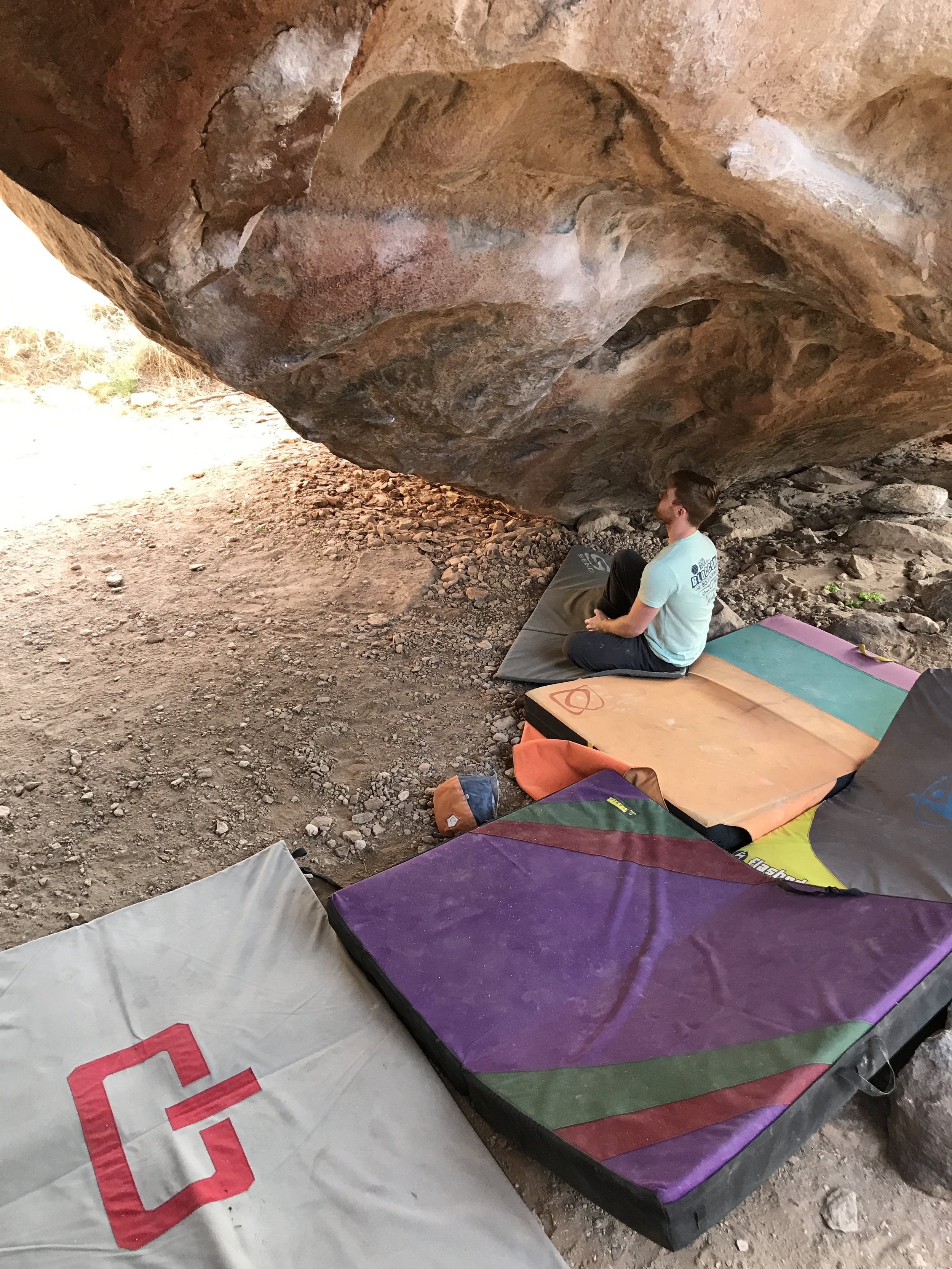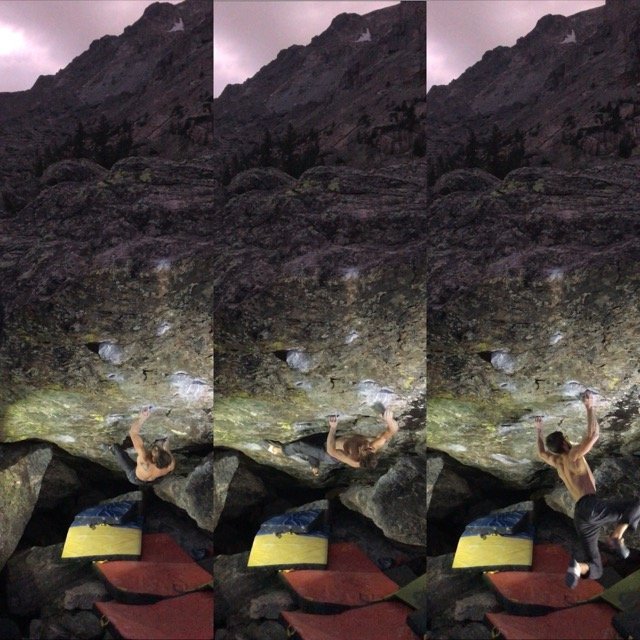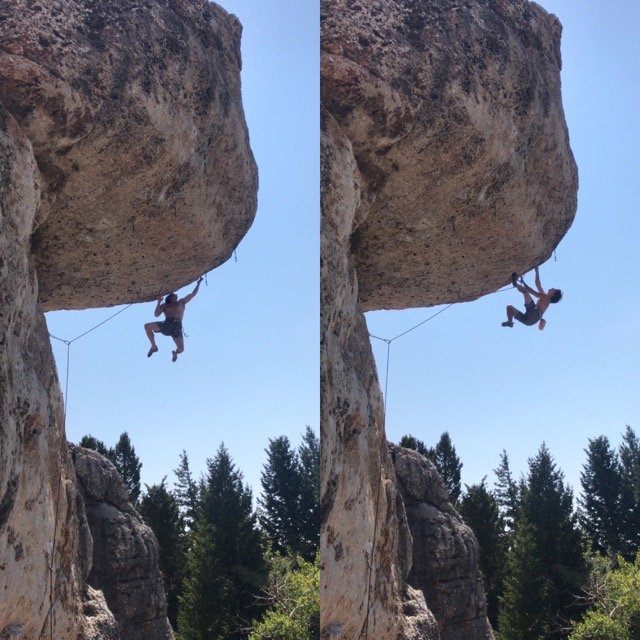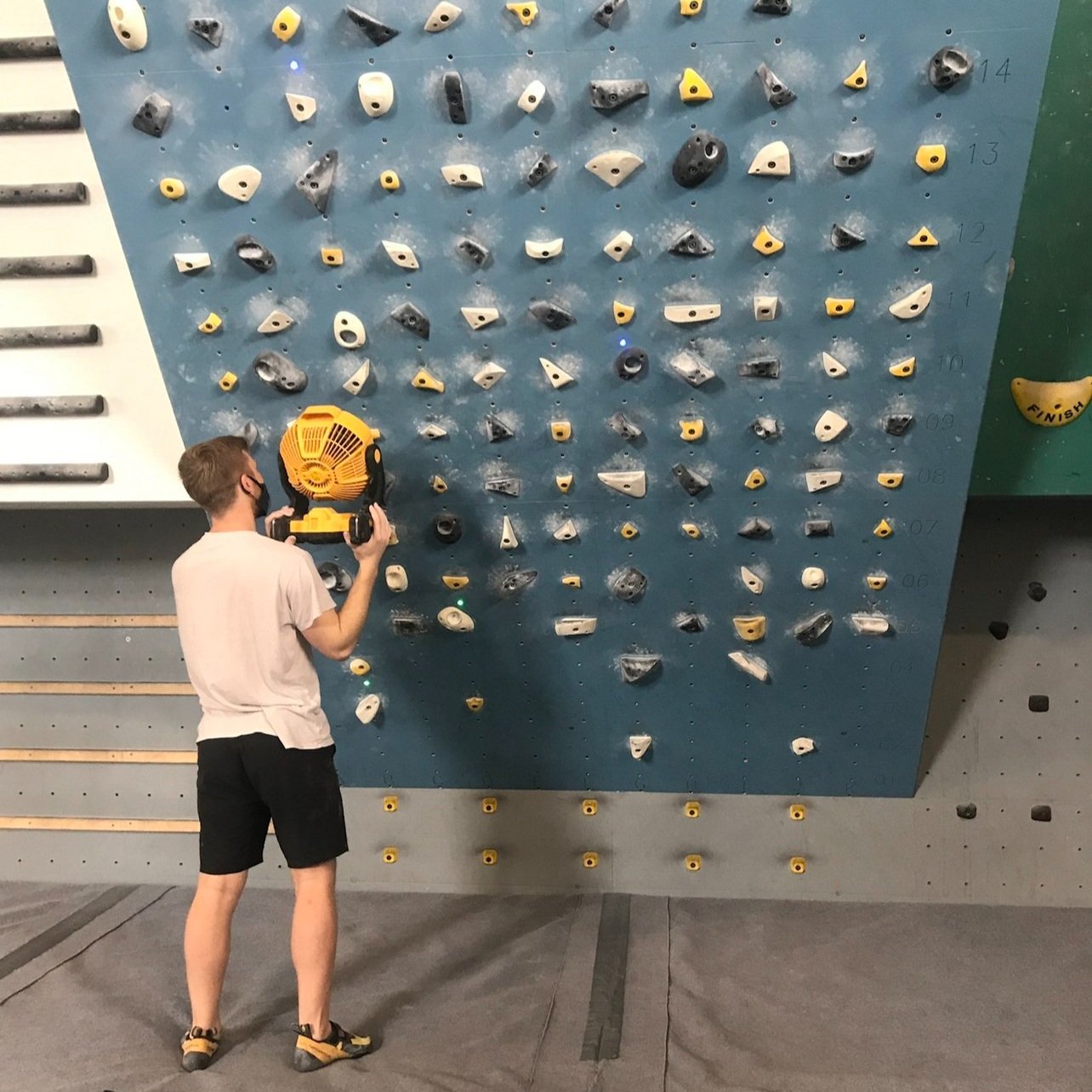Why Aren't You Worse at Climbing?
If you want better answers, start by asking better questions. As a coach, asking questions is an important part of my job. When I’m working with someone for the first time I start with some quick and easy ones like, “How long have you been climbing?”, “What are your goals?”, and “What do you enjoy about climbing?”.
As we get more comfortable, I bring the conversation around to what they believe their weaknesses are. For most, this is the easiest question they’ll answer. I get responses like, “How much time do you have?” or “Where do I even start?”. After several minutes of elaborating on everything they’re bad at, I flip that question around and ask what their strengths are. At this, many people go silent.
Not everyone loves to receive a compliment, and the thought of giving themselves one is even more uncomfortable. When this situation happens, as it often does, I ask one of my favorite questions: “Why aren’t you worse at climbing than you are?”

I love this question for two reasons: First, it’s hard for me to ask it with a straight face. It’s such a blunt question that I expect people to be offended by it. The opposite tends to happen, though. For people who are great at discussing their weaknesses as a climber, the reframing of “What are your strengths?” into “Why aren’t you worse at this?” creates a new lens for them to see themselves through.
If I ask you what your strengths are you might pause briefly before telling me something like, “I’m decent at technical climbing, I can do big moves as long as my feet don’t cut, and I’m alright at crimps.”
When I ask you why you aren’t worse at climbing than you are, it’s like I’m talking to an entirely different person. I get responses like:
“I keep showing up. I’ve never been naturally good at anything, but when I really want something I’m willing to be stubborn for it.”
“I watch other people around me and pay attention to what works for them and what doesn’t. I try to learn from everyone I’m around.”
“I know how to be honest with myself. If I’m falling because I’m not trying hard enough or because I’m intimidated by a fall, then I call myself out on it.”
“I have a background in playing sports. Putting in the work, day after day, is ingrained in me. I don’t do things perfectly, but consistency has never been a problem.”
Those are great answers. They are reminders that “strengths” means more than a list of physical attributes. Knowing your strengths and how you can leverage them is crucial part of long-term development.
If you struggle to answer the question “What are you good at?” try asking yourself “Why am I not worse at climbing?”. You might be surprised at what you find.

I never thought I’d be recommending this, but some of y’all should be putting less effort into becoming technically better climbers.
Do you really have terrible willpower? Or are you surrounded by distractions and obstacles?
Giving artificially low grades to climbs increases their perceived value for our training and development. The more something is mis-graded the more we naturally want to prioritize it.
Climbing starts off as this self-feeding cycle that has you wishing you could climb seven days a week. What happens when this cycle stops bringing improvement though?
Use strength to leverage every other aspect of your climbing, not replace them.
If everything you do is a finger workout, then when do your hands get a chance to recover?
There is a common theme between a grilled cheese sandwich and good training advice.
The more accurately we define our problems, the more approachable it will feel to find solutions.
Maybe the most understated way of getting better is to build fallback successes into your plan.
How much time should climbers spend becoming more well rounded vs. improving their strengths?
As cool as assessments and standards are, they can easily leave people settling for “good enough” when they have the potential to do much more.
Being able to quickly recognize familiar sequences is a crucial ingredient to harder climbing.
It’s far more comfortable for us to blame ignorance for our lack of progress than it is to blame our own efforts.
Once you learn the power of good tactics it can be hard to step away from them.
Of all the people that I spoke with this year who were stuck in plateaus, many of them had the same thing in common: they climbed and trained alone.
The belief that you are getting better at climbing is one of the most important ingredients in actually getting better at climbing.
How many times have you gone up a route and felt overwhelmed, only to look back and realize that it’s not as intimidating as it initially seemed?
Most of us go into a training plan or an outdoor season with an expectation, but expecting results can make us brittle when problems arise.
Whenever there is a training article online or some tidbit of knowledge on social media, it’s important that you consider the context.
At a certain stage in climbing, the hand and foot beta you use stops being the deciding factor in whether or not you are successful.
The intermediate climber’s problem with perception starts to arise when they can’t recall all of the solutions they have attempted during the problem solving process.
If you want to get the most out of your skill work and practice, being able to remember what you tried is a great first step.
Well-intentioned brainstorming about improving ourselves can quickly devolve into avoiding the challenge in front of us.






























Inspiration is intoxicating, but often fades as quickly as it shows up.